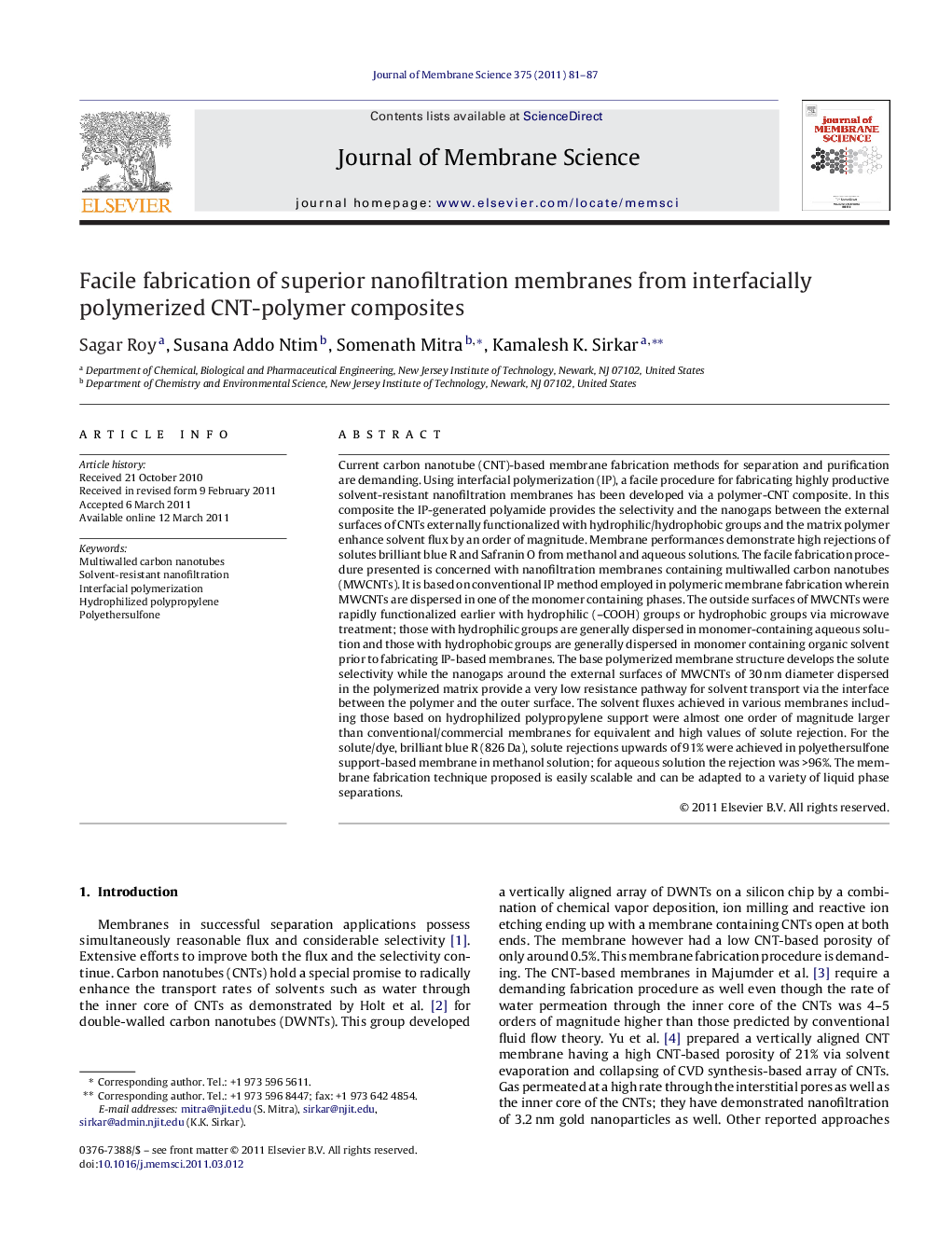| Article ID | Journal | Published Year | Pages | File Type |
|---|---|---|---|---|
| 635748 | Journal of Membrane Science | 2011 | 7 Pages |
Current carbon nanotube (CNT)-based membrane fabrication methods for separation and purification are demanding. Using interfacial polymerization (IP), a facile procedure for fabricating highly productive solvent-resistant nanofiltration membranes has been developed via a polymer-CNT composite. In this composite the IP-generated polyamide provides the selectivity and the nanogaps between the external surfaces of CNTs externally functionalized with hydrophilic/hydrophobic groups and the matrix polymer enhance solvent flux by an order of magnitude. Membrane performances demonstrate high rejections of solutes brilliant blue R and Safranin O from methanol and aqueous solutions. The facile fabrication procedure presented is concerned with nanofiltration membranes containing multiwalled carbon nanotubes (MWCNTs). It is based on conventional IP method employed in polymeric membrane fabrication wherein MWCNTs are dispersed in one of the monomer containing phases. The outside surfaces of MWCNTs were rapidly functionalized earlier with hydrophilic (–COOH) groups or hydrophobic groups via microwave treatment; those with hydrophilic groups are generally dispersed in monomer-containing aqueous solution and those with hydrophobic groups are generally dispersed in monomer containing organic solvent prior to fabricating IP-based membranes. The base polymerized membrane structure develops the solute selectivity while the nanogaps around the external surfaces of MWCNTs of 30 nm diameter dispersed in the polymerized matrix provide a very low resistance pathway for solvent transport via the interface between the polymer and the outer surface. The solvent fluxes achieved in various membranes including those based on hydrophilized polypropylene support were almost one order of magnitude larger than conventional/commercial membranes for equivalent and high values of solute rejection. For the solute/dye, brilliant blue R (826 Da), solute rejections upwards of 91% were achieved in polyethersulfone support-based membrane in methanol solution; for aqueous solution the rejection was >96%. The membrane fabrication technique proposed is easily scalable and can be adapted to a variety of liquid phase separations.
► Fabrication techniques for carbon nanotube (CNT) membranes are very demanding. ► We easily incorporated CNTs in interfacially polymerized nanofiltration (NF) membranes. ► Polypropylene-based NF membranes yielded an order of magnitude higher methanol flux. ► We obtained high rejections of brilliant blue R and Safranin O in methanol. ► Hydrophilized PES-based NF membranes performed similarly for aqueous solutions.
